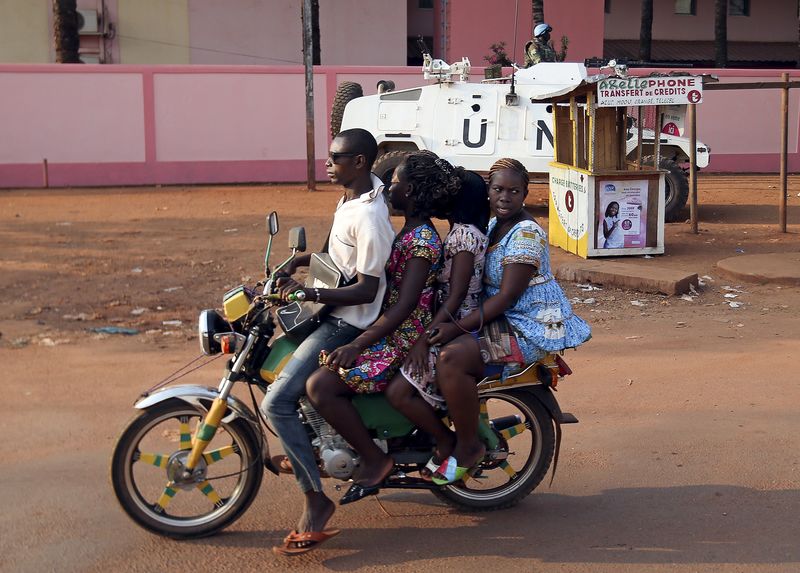BANGUI (Reuters) - About 90 percent of voters in the capital of the Central African Republic have said yes to a proposed new constitution, in a referendum that will pave the way for elections this month, authorities said on Friday.
Results from this week's vote are yet to come in from other parts of the country. About 10 percent of the population of nearly 5 million lives in the capital Bangui.
Central African Republic has been mired in conflict for nearly three years, since mostly Muslim rebels from a coalition called the Seleka seized power in the majority Christian country.
The rebels later handed power to a transitional government charged with steering the landlocked nation to a vote scheduled for Dec. 27.
Religious and inter-communal violence has continued, killing about 100 people since September, despite the efforts of two interim governments, a U.N. peacekeeping force and a French mission.
Violence in Bangui during the referendum killed five and wounded 34, according to the Red Cross. Turnout was around 30 percent of registered voters.
"We are able to give the provisional results from the countryside (outside Bangui) on Sunday or Monday," said Julius Ngouade Baba, the spokesman for the national election authority.
Human Rights Watch said fighters affiliated with Seleka leader Nourredine Adam blocked people from voting in some parts of the north after Adam said conditions were not in place for polls to take place.
On Tuesday Adam declared the northeast region to be autonomous, saying it would seek independence and spurring the government to call for international action.
The referendum results must be validated by the constitutional court, which will complete that task two weeks after the publication of the complete provisional tally.
The proposed constitution reins in the president's power and expands that of parliament, establishing a senate to complement the existing national assembly. It also creates a Special Criminal Court to try grave crimes.

Central African Republic is rich in diamonds, gold, oil and uranium but has one of the world's poorest populations.